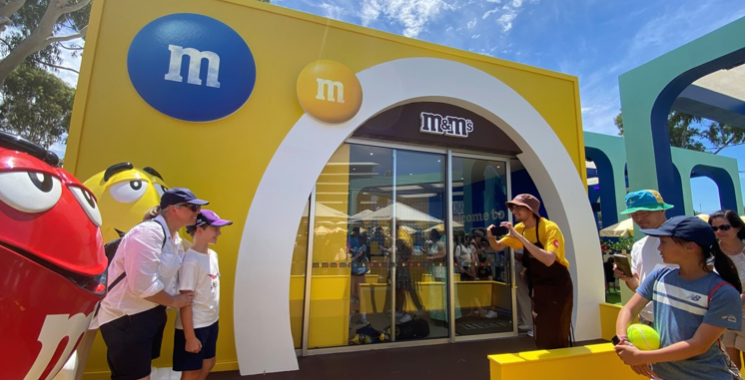
Creating a customer experience that's relevant and useful
The pandemic has brought about a shift in the relationship between consumers and brands. Consumers have become more socially conscious and are now looking to brands that align with their own values. They are willing to pay more for brands that do, but for brands that don't, it's easier than ever for consumers to make the switch.
The experience you offer is essential for providing value to consumers and meeting these changes in consumer expectations. You can no longer simply deliver a great product and expect loyalty. A large part of building a good relationship with consumers and increasing loyalty is first understanding their unique beliefs, interests, and qualities and then treating them like individuals.
It's just as easy to offer recommendations for a bottle of good red wine on a retail website as it is to "sell" one — and you'll see better results. People don't like being sold to anymore, so creating and maintaining valued relationships with customers relies on providing relevant, personalized experiences. It's about showing consumers that you can anticipate their distinct needs while respecting them as individuals.
In fact, marketing history perfectly illustrates how messaging moved from the "one to many" to the "one to few" approach before arriving at "one to one" communications. Now, it's even more predictive in nature. The internet and social media have equipped brands with the ability to not only reach consumers across more channels, but also to create consumer experiences that are relevant and useful on an individual level. You can quite literally engage in a two-way conversation with nearly any shopper (and reach them with personalized brand messaging) — and you must if you want to build good relationships and foster brand loyalty.
The key to businesses providing value to consumers
The consumer journey has changed dramatically. People are simply more active and engaged on digital channels, which has led to more competition for brands. You're not just competing with a shop down the street, but shops across the country (if not the world). And with the path to purchase growing in complexity, each touchpoint — of which there are many — is more important than ever in building a good relationship with consumers.
A consumer might start shopping on your website on their desktop and then (or even simultaneously) pick up their phone to look at your Instagram profile to see other product shots or customer reviews.
You must recognize the twists and turns of these longer journeys to ensure the consumer experience is seamless at every point. Even making consumers click on a product on their laptop that they've already put in their shopping cart on their phone could be reason enough to abandon a purchase.
Complicating matters further is what consumers now expect from brands. They're much more willing to pay a premium for better experiences. The more relevant and valuable that experience is, the more likely consumers will be to stay. If they feel like a brand "gets" them, they have no need to seek alternatives. Delivering meaningful experiences and providing value to customers starts with personalization.
To move from just selling to building good relationships with consumers through personalization, data is key. Consumer data helps you meet and predict their needs from the first interaction with your brand. This can reduce potential friction points in the decision-making process, saving time and effort for consumers.
Data can take you only so far, however. You also need a shift in mindset. Although sales and conversion rates should never be far from your mind, your business objectives should always tie back to a more customer-centric focus. Rather than viewing things through the lens of increasing sales, a better perspective would be inspiring trust among your target audience. What sorts of conversations need to take place so you can retain and attract consumers?
People don't like to be sold to anymore, and they can spot marketing messaging a mile away. Flip the script and provide real value to consumers with personalized, relevant experiences.
This doesn't just help build good relationships with consumers, but it also illustrates that your brand sees each consumer as an individual — not a sales target or a persona — and is ready to meet their needs.
by Diane Keng — CEO and Co-founder, Breinify











